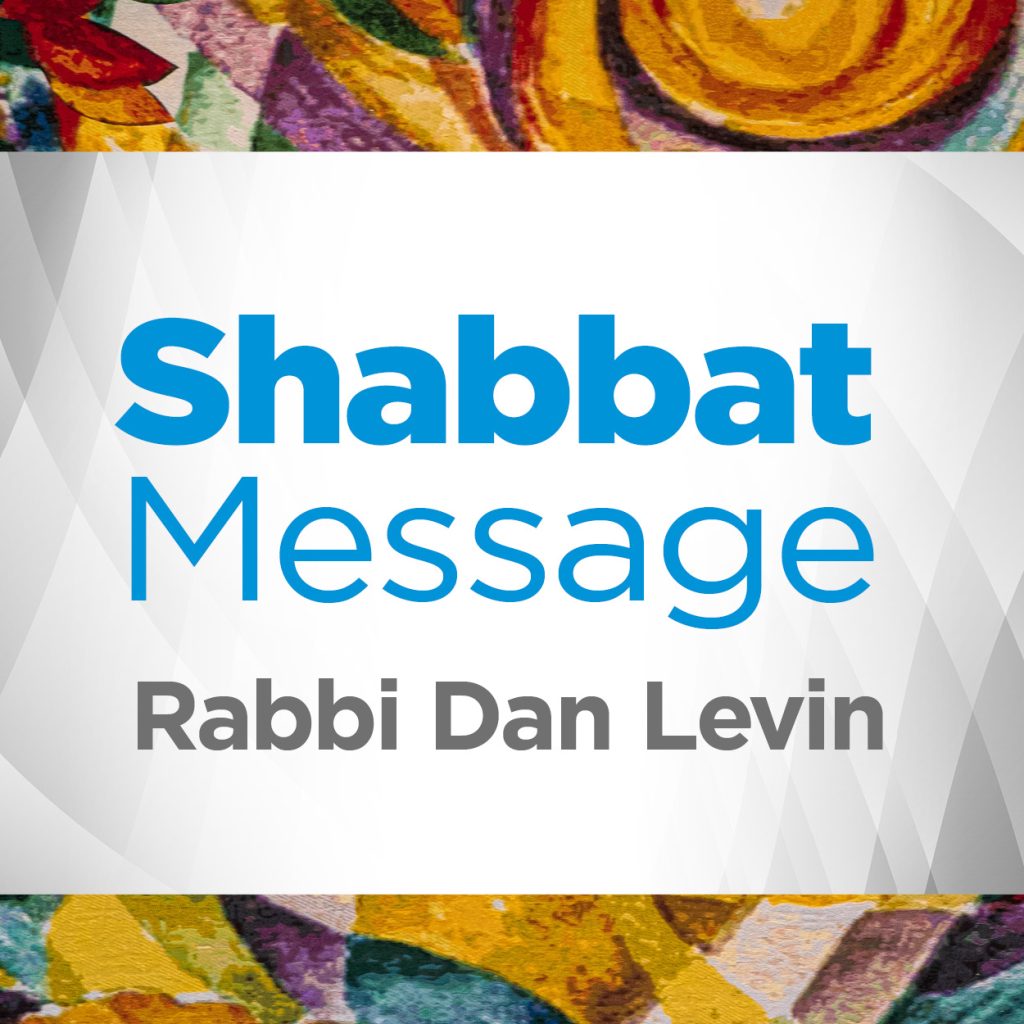It’s almost impossible to remember back to our celebration of Passover last year. So much has happened in our lives, in the Jewish world, in Israel, and around the world that has impacted who we are as we prepare for this year’s Seder.
The horrific massacres in Israel following the Hamas invasion of October 7 inflicted a deep and menacing wound on the body, heart, and soul of the Jewish people. The agony continues for those still held hostage, and for their families and loved ones. The pain persists in those recovering from catastrophic injury, and for those whose physical wounds may have healed, but who carry even deeper wounds in their hearts and psyches and souls.
The explosion of antisemitism across America, from city councils to university campuses has cast a pall of dread over our community. Our hearts climb into our throats as we watch Israel repel an onslaught from Iran, and wonder what will quell the growing cycle of violence.
And at the same time, many of us carry within, deep conflict over what we see on our computer and television screens; of news stories that report thousands of casualties, displacement, starvation and suffering in Gaza.
The Passover Seder is a time when we gather together our loved-ones, family and community to tell the story of our people. In one ritual, we celebrate all we value as Jews – Life, Love, Knowledge, Wisdom, Justice, Compassion, Freedom, and Peace. But even the application of these values sometimes surfaces conflict within families and among friends.
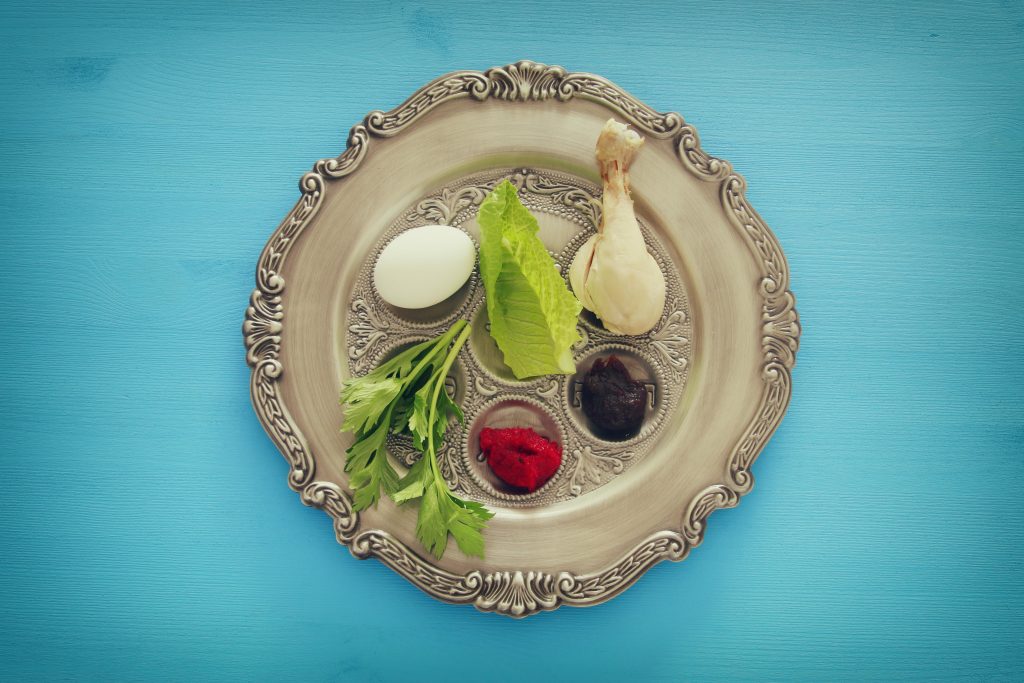
Some families look at the events of this past year through very similar lenses, while others will sit across the table from people who see things from very different perspectives. And still others wonder what they should say with their young or younger children on this day we celebrate our peoplehood and the moral principles for which God ensured our liberation.
We provide these resources to assist you with your Passover Seder, and hope they help you create a truly meaningful Seder experience for you and those with whom you will gather this year.
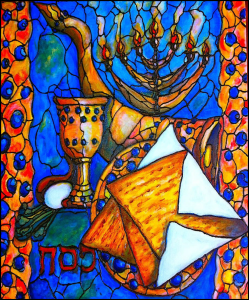 It’s important to prepare those who gather with you for what you expect from your Seder. It’s important to remember that a Seder meal is for dialogue, not debate.
It’s important to prepare those who gather with you for what you expect from your Seder. It’s important to remember that a Seder meal is for dialogue, not debate.
Corky Becker of Essential Partners taught that debate is like volleyball – your job is smash the ball at your opponent so that you can make them miss in order to score a point. Dialogue, however, is like playing catch – your job is to give to your partner in order that they can receive, and for them to give back to you in the same way, so that you keep the ball from dropping.
Encourage your Seder participants to play catch, rather than volleyball. Remind them that the rabbis believed the Seder was a time for conversation and inquiry – a night more about questions than about answers. Invite them to come with curiosity, rather than judgment, and to listen carefully and openly to what others will say. Ask participants to think before they offer a thought or a response, to remember that this is a sacred dialogue on a sacred evening.
The genius of the Haggadah and the Passover Seder is that it will evoke allusions to so many different aspects of our current challenge. Take time when those allusions arise to explore them appropriately. Encourage the participants at your Seder not to rush through a meaningful opportunity to see the world through the lens of our tradition.
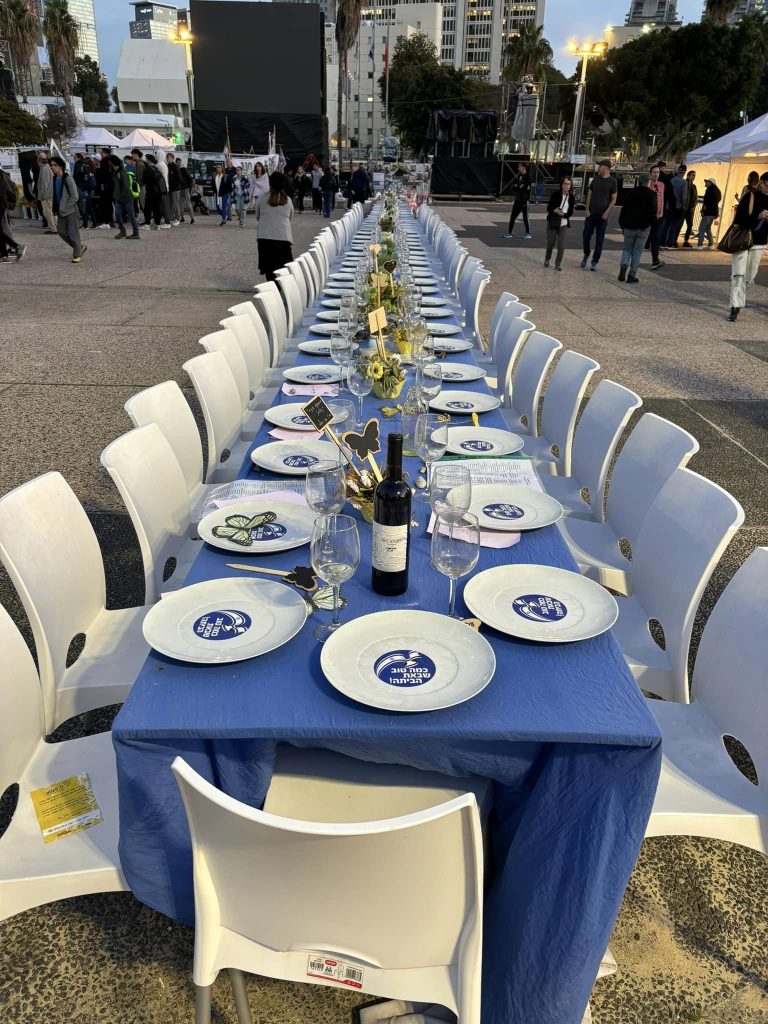
Monday night, April 22, 2024, will mark the beginning of 200 days of captivity for those taken hostage on October 7. Leave an empty seat at your Seder table so that one of the hostages can be there with you. Place an Israeli flag on the chair, or visit this website so that you can give one or several of the hostages a place at your table.
When a loved one dies – especially a young person — a rabbi will often suggest, “light a third candle every Friday night.” Years later, many parents still do.
Tonight, we too light a third candle. To remember and not to forget. So that their memories shine as a blessing.
For fathers, grandfathers, husbands, sons, brothers, brothers-in-law; mothers, grandmothers, wives, daughters, daughters-in-law, sisters; cousins, friends, names we are just learning, names we should always remember.
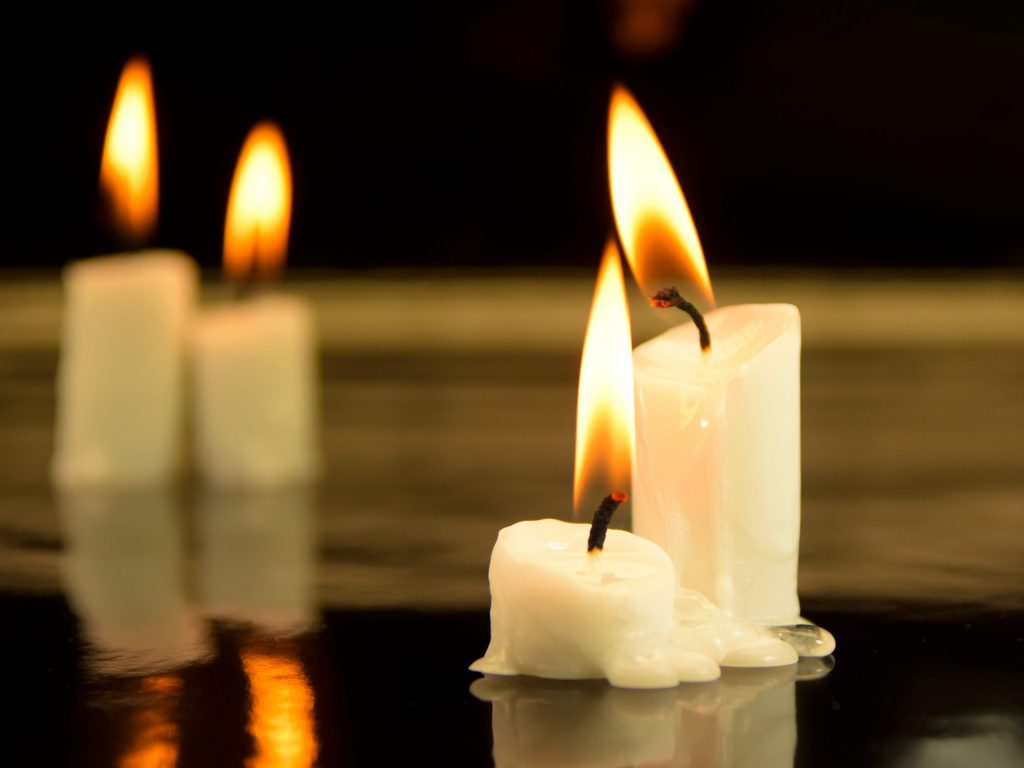
We light for them.
For children–infants, toddlers, teens—who have not yet tasted the fruits of life.
We light for them.
For soldiers, dancers, Kibbutznikim. For people waiting for a bus.
We light for them.
For people who just wanted to live their lives in peace, for those who worked and strove for peace.
We light for them.
For those taken hostage, who spend this night in the darkness of captivity, apart from their families and their people, for whom we pray the light of hope and redemption awaits.
We light for them.
Let us be the light. Let us be the ones who shine God’s light into all the dark places in the world. Let the lights we kindle bring the blessings of hope and redemption, and begin to heal our fractured and broken world.
The green vegetable on the Seder plate is a symbol of hope. In a year that has been so difficult for the Jewish people collectively, and for many of us individually, ask participants of your Seder what is giving them hope?
This year,
what should we say to the wise child?
The child who is paying attention.
The one who is able to hold the nuance.
We should tell her
this is a time of stories,
and she should listen
carefully.
We all should.
Not all stories
are easy to hear.
But all stories
are essential.
Imperative.
And only after
we listen –
truly listen –
can we hope
for freedom
and redemption.
“There is no hope,”
her brother responds.
“They won’t allow it.”
Some might call him
the evil child,
but do we really need
more name calling
in the world?
We must remind this child
of ours
that there is no them,
only us.
All of us.
Together.
Striving for peace
we hope –
no, we know –
we can achieve.
Together.
Even if he
doesn’t believe it.
Yet.
And what about
the simple child?
The one who doesn’t know the details,
but knows all is not as it should be.
We should tell her that,
yes –
people are hurting
and suffering
and dying.
And the angel of death
has not yet passed over.
But we are working,
as hard as we can,
to rid the earth
of any more plagues.
“When do we eat?,”
asks the last child,
the one who doesn’t yet know
the trials of the world.
We should send this child
to the door.
They should be the one
to throw it wide open.
To welcome
all those
who are hungry
to come and eat.
All those
who are weary
to come and rest.
And all those
who seek peace
to join in our Seder.
Because if we can all
sit together,
spilling wine,
finding crumbs,
and singing
late into the night,
everything will,
indeed,
be in order.
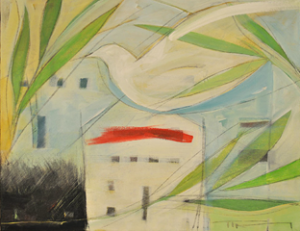 A famous passage of the Haggadah reads: “This promise has stood us and our parents in good stead, for not just one enemy stood over us to annihilate us. In every generation enemies have threatened to destroy us. Yet the Holy One keeps the promise to save us from their hands.” In such a difficult year, when we have suffered attacks from our modern-day enemies, this passage speaks loudly to us.
A famous passage of the Haggadah reads: “This promise has stood us and our parents in good stead, for not just one enemy stood over us to annihilate us. In every generation enemies have threatened to destroy us. Yet the Holy One keeps the promise to save us from their hands.” In such a difficult year, when we have suffered attacks from our modern-day enemies, this passage speaks loudly to us.
But as we think about the course of Jewish history, what is it that has sustained us through the darkest periods? Take a moment to ask the participants in your Passover Seder what it takes to move through a difficult time? What does a person need to face adversity, and how does our Jewish tradition and heritage strengthen us in our most challenging moments?
At the core of our tradition is the idea recounted in the Mishna, that God created swarms of every living creature, but just one human being, to teach us that each of us descends from the same human parent, and that each and every life is of infinite value.
Our Sages taught:
At the very hour that the Egyptians were drowning,
the angels wanted to sing before the Holy Blessed One.
God said to them:
“My children are drowning in the sea—yet you would sing in My presence?”
As the heirs of slaves redeemed from Egypt’s violence,
we rejoice at the sight of oppression overcome.
Yet our gladness is diminished by the suffering of our foes,
Even if their suffering results from their complicity in our oppression.
Therefore, we take ten drops from the wine within our cups: one for each plague God brought upon Egypt. As we spill wine for each of the plagues, we think about the importance of never losing our appreciation for the humanity even of our enemies, and to let our hearts be filled with anguish for those innocents caught in the midst of the agony of conflict.
After reciting the ten plagues visited on Egypt, participants can go around the table and name other plagues that cause suffering in our day, drawing another drop for each as a prayer they too will be eradicated from the earth.
Consider adding this to the traditional refrains of Dayeinu!
If only October 7th had been filled with shouts of joy in the streets instead of the piercing sirens of attack and war – Dayeinu! – it would have been enough.
If only the safe rooms kept our people truly safe – Dayeinu!
If only the dancing at the Supernova festival had not been broken by gunfire and grenade. Dayeinu!
And on this night when we recount our blessings, still we share our yearnings and prayers …
If only all the hostages would be released – Dayeinu!
If only the voices of women worldwide would shout in outrage in support of Israeli women – Dayeinu!
If only the shower of missiles would cease falling in the North. – Dayeinu!
If only our enemies would lay down their weapons and reach out their hands to build a shared future together – Dayeinu!
If only college campuses would be places of curiosity and open-mindedness, rather than spaces of close-minded judgment – Dayeinu!
If only humanity would teach children to open their hearts with love and compassion rather than hatred and rage – Dayeinu!!
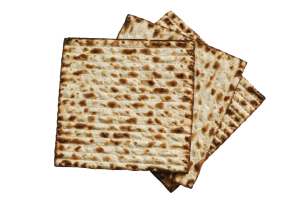 After eating the Matzah and the Maror, there is a custom of eating a “Hillel Sandwich” – where bitter herbs are mixed with Charoset between two pieces of Matzah. Tasting the bitter and the sweet in the same bite reminds us of the complexity of life, and how only in God can two things that are diametrically opposed can both be true at the same time.
After eating the Matzah and the Maror, there is a custom of eating a “Hillel Sandwich” – where bitter herbs are mixed with Charoset between two pieces of Matzah. Tasting the bitter and the sweet in the same bite reminds us of the complexity of life, and how only in God can two things that are diametrically opposed can both be true at the same time.
This year, before eating your Hillel Sandwich, make for yourself, an “empty” Hillel Sandwich – two pieces of Matzah with nothing in between. That “empty” space is for imagination. Take a moment to imagine what real freedom should represent in our world. What would the world look like if it were truly free – free from oppression, free from hatred, free from violence, free from despair? Have each person go around and tell one piece of what they would imagine the world could be and then eat a Hillel Sandwich of imagination.
Later in the Seder, when you go open the door for Elijah, you are beginning to make that vision a reality, opening the door to all the possibilities of a what a world redeemed could be. We open the door to a beginning – a pledge to work toward making what we imagine a reality.
Opening the Door for Elijah...
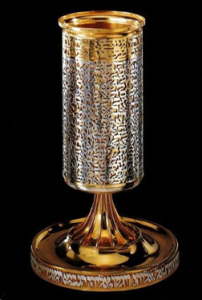 Tikvah/Hope: The Enclave of Freedom in the Human Soul
Tikvah/Hope: The Enclave of Freedom in the Human Soul
-David Grossman
Hope, I thought, over and over again, trying to awaken it inside me. I called to it, out loud, in Hebrew even, perhaps it speaks Hebrew: “Tikvah! Tikvah!”
I thought about Israel’s national anthem, which is called “HaTikvah” – “The Hope.” It speaks of the hope held by Jews for two thousand years in exile, the hope of one day being able to live in their own country. It was a hope that often kept them alive.
Hope is a noun, but it contains a verb that propels it into the future, always to the future, always with forward motion. One could look at hope as a sort of anchor cast from a stifled, desperate existence towards a better, freer future. Towards a reality that does not yet exist, which is made up mostly of wishes, of imagination.
When the anchor is cast, it holds on to the future, and human beings and sometimes an entire society, begin to pull themselves towards it.
It is an act of optimism. When we cast this imaginary anchor beyond the concrete, arbitrary circumstances. When we dare to hope, we are proving that there is still one place in our soul where we are free. A place that no one has been able to suppress. And thanks to this anchor of fearlessness, of freedom, in the souls of those who have hope, they know what the reality of freedom looks like.
They also know how crucial it is to fight for it.
- PJ Library – This source is filled with pieces to download for free, and videos to watch to enhance a children’s Seder experience.
- My Jewish Learning – This website shares all kinds of information on how to prepare for Passover, leading a Seder, and other Passover basics.
- Central Conference of American Rabbis – Passover Supplements – The Reform Movement offers resources here to add to your Seder, modeled after the CCAR Haggadah – Mishkan HaSeder
- ReformJudaism.org – The Union for Reform Judaism offers a free Passover activity book with recipes and suggestions for making the Seder meaningful for children.
- Shalom Hartman Institute – This special Haggadah supplement offers contexts and ideas for discussion from leading scholars in Israel and America around different elements of the Passover Seder.

